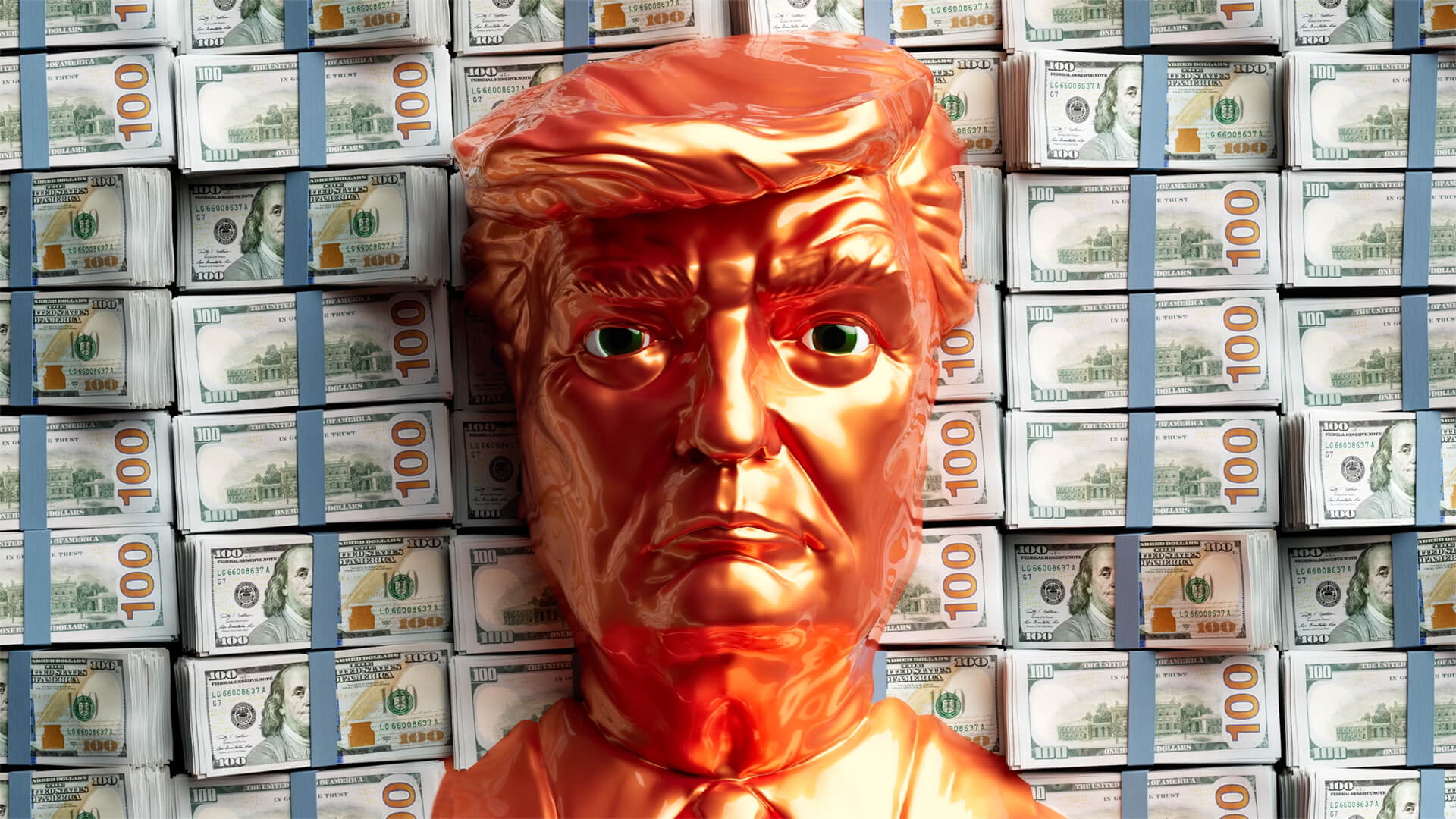The Trump administration has introduced a level of chaos that can only result in one thing: corruption. I’m not talking about starting a cryptocurrency or manipulating the stock market, this is deeper.
Trump’s arbitrary tariff policies are destabilizing the US economy and eroding the rule of law. The ever-changing nature of these policies makes it impossible for importers to plan for or comply with. And in a broken system, corruption is bound to seep in. And since the US relies on self-reporting tariff obligations and has very few guide rails in place, businesses will likely turn to bribery to keep their goods flowing smoothly.
This is reminiscent of 1990s Russia, or even what happened in Argentina, which aren’t the best examples to be compared to…
Here at Zeihan on Geopolitics, our chosen charity partner is MedShare. They provide emergency medical services to communities in need, with a very heavy emphasis on locations facing acute crises. Medshare operates right in the thick of it, so we can be sure that every cent of our donation is not simply going directly to where help is needed most, but our donations serve as a force multiplier for a system already in existence.
For those who would like to donate directly to MedShare or to learn more about their efforts, you can click this link.
Transcript
Hey all, Peter Zeihan coming to you from Colorado. Today we’re going to do the most recent in our Firehose of Chaos series, looking at the economic impacts on the US from corruption that is being imposed upon the system by the Trump administration. And we’re not talking about here corruption at the top, like when Donald Trump forces foreign dignitaries to stay at his hotels, or when he starts a Bitcoin program to basically scam people, or when he does pump and dump systems with the entire stock market.
That’s a separate topic. And we’re not talking about a more traditional corruption that happens in a federal bureaucratic environment when bureaucrats basically pad things like invoices and take a cut themselves, not the Chinese style. We’re talking here about corruption that is being imposed by the Trump administration on the broader economy, where it can have a much bigger, deeper impact and really start eating away at the cultural advantages that we have of the United States, including rule of law and all has to do with the rapid, rapid, rapid changes in economic policy, most notably tariff policy.
I’m recording this on tax day, April 15th, and we have now had 94 tariff policies in 44 days, all coming from Trump himself. This is not counting the policy suggestions that are coming from cabinet secretaries or the back and forth that’s happening within the administration is they’re trying to come to grips with whatever. The most recent thing to come out of Trump’s mouth is.
This is just hard. Trump tariffs. And in that sort of environment, it is impossible for companies who are doing importing to really know what to do because there’s a process for collecting terrorist. I mean, think about the volume here. It’s roughly $3.8 trillion in goods imports every year. That’s over 62 million container units. And we have no none, zero staff at US ports to collate those things, to understand what the value is of the product.
And so therefore what the terror should be, the way tariffs are collected in this country is the importer self-reports what is coming as it crosses the border and into the port of entry, and then pays the taxes electronically. And in that sort of environment, clarity is absolutely critical. And having 94 tariff policies in 44 days and knowing that much, much, much more is coming down the pipe means that no one’s really sure what to do.
Because oftentimes we get multiple tariff policies in a single day. We’ve had two days already where we got six tariff policies within an eight hour period. And so even if you are attempting to follow the rules to the letter, you can’t because you never know what is going to come out of Trump’s mouth. These tariffs happen instantly, or maybe with a 48 hour lead in.
And then it’s just a question of enforcement and there is no enforcement. So take for example auto tariffs on May 2nd. We’re supposed to get a new tariff that’s 25% on all auto parts. If you have a container of auto parts coming in on a truck from, say, Ontario, when that hits the border, you need to know each an individual part that is in there and then report it.
But what if it’s something that is dual use, like say, wiring? Is it an auto part? Is an electronic part, is it a welding part? Is it something else. So the administrative cost of that goes through the roof and probably is going to be higher than the part is in the first place. The other problem, let me give you another example is what’s going to happen with electronics, over a two week period starting on April 2nd. We had tariffs going up on China. We start with 20%. We went to, I think 54%. Then we went to 80 something percent, down 104%, then 125% and finally 145%.
So everything coming in from China had that kind of scale going up, and the importers didn’t know what to do. Now think about electronics, a specific subset over $100 billion of electronics coming from China every year. Well, what we did originally was 145% tariff. That’s why I bought my extra phones and my extra computer.
And then about April 11th, Trump said, just kidding, they’re in abeyance. In fact, we’re not even going to charge our 10% base tariff on electronics products. So it used to be relatively simple, relatively, where every container in just had a flat 145% tariff. Now they had to do a carve out for electronics the next day. Coward, like the Commerce secretary said, this is temporary.
Don’t get used to it. So they started putting it back on again the next day, Trump said, no, it really is off. And so they started peeling it off again. And then the next day Donald Trump said, actually, no one is going to get an exemption. We’re just going to have a different bucket for computing and electronics products.
It’s going to be part of our semiconductor tariff. So what now? We’re going to have an additional tariff on every thing that has a computer chip in it. Well, that includes everything from backyard grills to white goods to your fridge. No one knows what the system is, so no one can choose to follow it dutifully because the rules keep changing, they’re not clear.
And instead of being built up by the bureaucracy who puts this all into the public register where anyone can follow it, it is literally, often nothing more than a Trump tweet. So where does that leave us? Well, it’s a question of how do you administer these things? There’s two problems there, too. Number one, Donald Trump fired all those, fired all of the temporary workers in the federal system.
Imports and exports don’t flow in the same, scale on for the same products every single day. So we have a lot of temporary workers who work in the ports to help out with the work, as it needs to be done specifically for border Patrol. Those people have either been fired or directed to other tasks, and so they’re no longer is a staff to do it.
So, for example, on April 11th, when the software for this entire system failed, we just didn’t collect tariffs that day. Oh, there’s also the issue at the upper levels. There’s no one to interpret what Trump says. Remember that the top 1400 positions across the federal bureaucracy were basically cut when Trump cleared out everyone, including the people who are typically not fired between administrations because they have the all the organizational knowledge and technical skills, they’re all gone.
So there isn’t a cadre of people at the top that are loyal to Trump that also have the ability to design these programs. And even if there was, you know, they’d have to do it hour by hour. Well, we have seen this before. This reminds me a lot of Argentina, where the Peronist government, through the 2000 to the 20 tens, kept changing the rules over and over and over and over and over again for personal, political or ideological reasons.
And it became easier for everyone to just find ways to avoid them. See, the problem is, is when you make the rules impossible to follow, the only way that business people can function. Is to have a personal relationship with the people who are enforcing the rules. The way tariffs work, you self-report and then there are spot checks. We have set up the perfect system that will, for force American importers and businesses to bribe the people who do the spot checks, and that is something that will corrode out through the broader system.
This is very Russian 1990s right now. We’re setting up the stage where we’re telling our business community that they have no choice but to violate the rules if they’re going to function, because the rules are almost designed to not be valuable. Is that even a word? Anyway, it would be nice if this all settled down in the near future, but Trump has promised us in the next few weeks we’re going to have tariffs on sector products.
So agriculture, car parts, semiconductors, medications and so on. As with everything, there is no one in the upper echelons of his administration who knows much of anything about these economic sectors. So it’s all going to be arbitrary, it’ll all be based on the ideas that Donald Trump is having at the time, based on whatever data point he happens to find egregious. And there will not be a rules creation system.
It’ll simply be imposed by tweet. No one will know how to follow it, and it will set us up for an erosion of rule of law throughout our corporate world. Bye.








